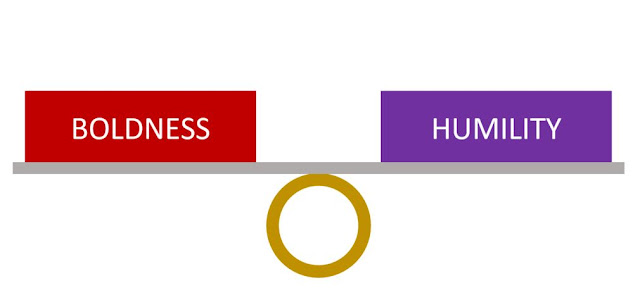"We require both humility and boldness if we want to do theology well."
Mystery defies both containment and concision. A few etymological types might penetrate further into the correlative conjunction and the juxtaposition.
- - -
The Church is blessed with many outstanding thinkers, more in the past and fewer in the present, perhaps, but blessed nonetheless. One contemporary thought-crafter that readers might look at is
Douglas Farrow, PhD, [...] professor of theology and Christian thought at McGill University in Montreal, Quebec. A noted lecturer and a prolific essayist, he is the author of several books, including Ascension and Ecclesia, Ascension Theology, Nation of Bastards: Essays on the End of Marriage, and Desiring a Better Country: Forays in Political Theology. His 2018 book Theological Negotiations: Proposals in Soteriology and Anthropology (Baker Academic) has been praised by Scott Hahn as “uncompromisingly biblical, catholic, and ecumenical” and Tracey Rowland states that “Farrow’s style is engaging; the essays could be appreciated for their literary qualities alone, quite apart from the theological insights they contain.” - the introduction to an article at CWR (link below).
a detailed treatment of the problem of transubstantiation. Here I return to Aquinas, and to the task of rethinking some of his ideas by way of a more adequate eschatology. I expect this chapter to be controversial as well, even inside Catholicism. But both Catholics and Protestants, if they read it patiently, will perhaps find that the whole stubborn business—the very serious business—of transubstantiation appears in a fresh light.
If he uses phrases such as "a more adequate eschatology" in reference to Aquinas, and "the problem of transubstantiation", I suspect, yes, a few people might get bent out of shape. At the same time, those who are patient and not easily distracted may engage Dr. Farrow's work and give it an appropriate reading.
Dr. Douglas Farrow: (Theological Negotiations) is a work in ecumenical theology, as well as systematic theology, but not one that tries to dissolve all differences or make them go away. I want people to think harder about differences, particularly Catholic/Protestant differences, so as to put certain key problems in a new light.
Whenever someone includes a phrase such as "in a new light" to describe their efforts, implying, of course, there is something importantly original in their work, we should give their work a thorough flogging to determine its worth, and if a passage is found wanting in a serious way, i.e., in a way that - if left to rot at the curbside for anyone to come along and, thinking it's fresh fruit, subsequently run off with it to poison themselves and others with whom they share it - merits its rejection to protect others from its error, then we should be humble and bold enough to raise a red flag and call for said work to be corrected or consigned to the dustbin.
We're a bit overdue for a capable theologian to come forward and strip away our mental safety net, to challenge us to think deeply and to think with the Church (sentire cum ecclesia).
CWR: You don’t shy from controversy, but neither do you shy from the historic faith of the Church. Is that a difficult line to walk?
Dr. Farrow: Sometimes it is, yes. The faith is handed down to us by the Church. We don’t get to invent it. But we do share in the task and responsibility of trying to understand it. Hence we require both humility and boldness if we want to do theology well.
Boldness, not pride. Be humble in the presence of truth and bold in its sharing.
A sampling of Farrow:







Comments
Post a Comment
Your comments will be appreciated and posted if 1) they are on topic and 2) preserve decorum.
Stand by your word.